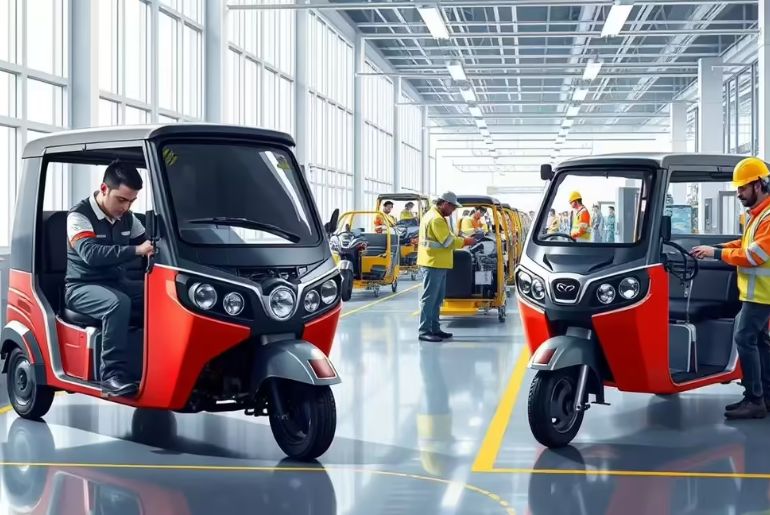In a significant regulatory move to ensure quality and safety in the electric vehicle (EV) sector, the Indian government is set to make audits of production facilities mandatory for all e-rickshaw manufacturers operating in the country.
Growing concerns about the quality, safety, and performance of e-rickshaws sold in both urban and rural markets have prompted the initiative. The Ministry of Road Transport and Highways (MoRTH), in coordination with testing agencies and other regulatory bodies, will implement periodic audits of manufacturing plants to verify compliance with safety standards, production protocols, and certification norms.
A senior official from the ministry stated, “We are seeing an exponential rise in the number of electric three-wheelers, particularly e-rickshaws. While this is beneficial for urban mobility and environmental goals, it is essential to ensure these vehicles are produced with proper oversight and meet necessary safety requirements.”
The government aims to address the influx of substandard and unregulated vehicles entering the market, particularly those assembled with imported kits or lacking proper homologation. The audit will evaluate key aspects such as testing infrastructure, supply chain integrity, and manufacturing consistency.
Manufacturers failing to meet the required standards may face penalties, suspension of certification, or even closure notices, depending on the severity of non-compliance. We anticipate the move to safeguard consumers and guarantee the sale of only dependable, high-performing vehicles.
The policy is expected to be rolled out in a phased manner, with initial focus on high-volume states such as Uttar Pradesh, Bihar, West Bengal, and Delhi-NCR, where e-rickshaw adoption is widespread.
The mandate aligns with the government’s broader vision of promoting safe and sustainable electric mobility while encouraging responsible manufacturing practices within India’s rapidly expanding EV sector.

